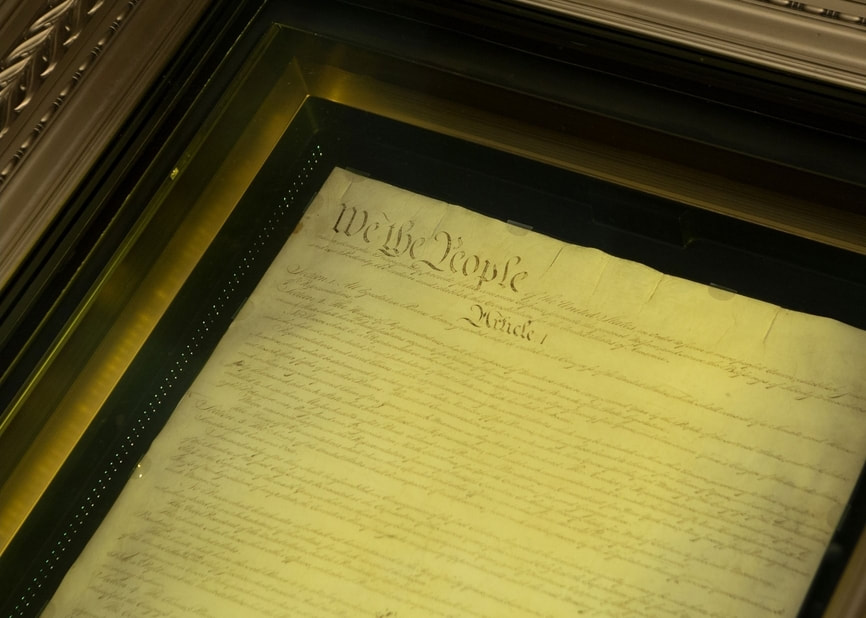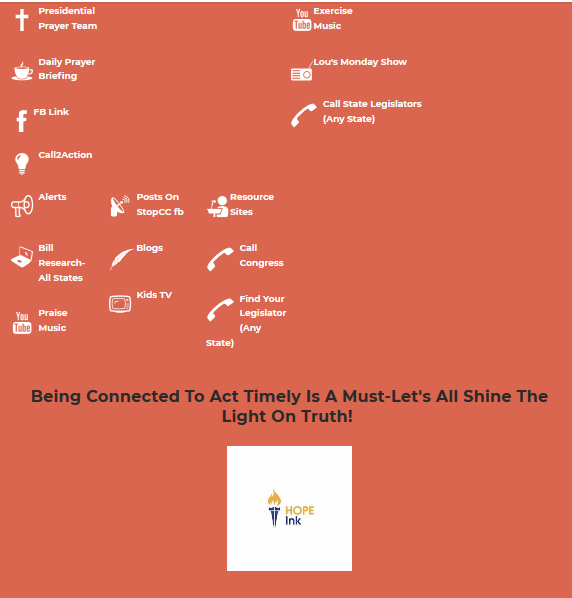|
The right of the people to be secure in their persons, houses, papers, and effects, against unreasonable
searches and seizures, shall not be violated, and no Warrants shall issue, but upon probable cause, supported by Oath or affirmation, and particularly describing the place to be searched, and the persons or things to be seized. US Constitution, 4 th Amendment No person shall be held to answer for a capital, or otherwise infamous crime, unless on a presentment or indictment of a Grand Jury, except in cases arising in the land or naval forces, or in the Militia, when in actual service in time of War or public danger; nor shall any person be subject for the same offence to be twice put in jeopardy of life or limb; nor shall be compelled in any criminal case to be a witness against himself, nor be deprived of life, liberty, or property, without due process of law; nor shall private property be taken for public use, without just compensation. US Constitution, 5th Amendment The enumeration in the Constitution, of certain rights, shall not be construed to deny or disparage others retained by the people. US Constitution, 9th Amendment The powers not delegated to the United States by the Constitution, nor prohibited by it to the States, are reserved to the States respectively, or to the people. US Constitution, 10th Amendment Amid the debate over Common Core Standards for Education an aspect that seems to be overlooked is that as part of tracking the “development” of each individual student over the course of his/her academic career schools are required to collect data on each student covering over three hundred (some sources state as many as four hundred) “data points.” Politifact denials to the contrary – there are too many other sources confirming the fact – “The National Education Data Model includes over 400 data points, including health history, disciplinary history, family income range, voting status, religious affiliation, and on and on.” 1 A lot of this information is gathered as part of agreements made with standardized testing (which has become the “be-all” and “end-all” of education the last twenty years). As a teacher I remember supervising the students filling out personal data before they took each of the tests we were forced to give. I noticed as time went on each year the questionnaires took longer to fill out and became (in my opinion) more invasive. I’m a big privacy person. To make it short (check out my links below for further study, if you’re interested), for years schools have been gathering data on their students in the name of improving performance and curriculum. As time has passed and with Common Core the scope of types of data collected has been expanded. Now, there are supposed to be privacy protections over such data, like Family Educational Rights and Privacy Act (FERPA), but in 2012 FERPA was changed, greatly weakening it. 2 In any event, the government privacy regulations appear to have loopholes one can drive a truck through. Information can be had, provided one uses the proper language in his or her request. Let me give you an idea of how it works. There isn’t supposed to be a Federal Student Data Collection – that would be a violation of the 10 th Amendment quoted above. Remember, as Barack Obama himself fretted in a 1995 radio interview the Constitution pretty much is a document of “NEGATIVE POWERS” – particularly where the Bill of Rights are concerned. The Constitution and Bill of Rights basically denies the Federal Government powers to do anything not specifically DELEGATED to it by the Constitution. All other powers are RESERVED powers – reserved by the States or the Individuals themselves (9 th and 10 th Amendments above). The Federal Government isn’t supposed to have anything to do with Education because there is no provision in the US Constitution for public education (Article I Section 8); now the “Necessary and Proper” clause which gives Congress the power “to make all Laws which shall be necessary and proper for carrying into Execution the foregoing Powers, and all other Powers vested by this Constitution in the Government of the United States, or in any Department or Officer thereof.” That’s been nicknamed the “Elastic Clause” because it has been stretched to cover just about anything Congress seems fit to deal with. But there are limits to even the Elastic Clause. Congress is forced to do end runs around their limitations to get their way; usually through Federal matching funds. It’s always the money. The Feds dangle money; if you want the money (and I’ve never known a public institution that didn’t) you do what the Feds want. It’s all about the government buck. That’s how Common Core came about. There are those who doubt – with good reason – that the Department of Education is unconstitutional for the very reasons I’ve already stated. One might think National Education Standards is a great idea – as an Army brat who attended five high schools (some twice) I can see the advantages to the idea. For me, there are two problems – one, WHO’S writing them and two – it’s unconstitutional for the Federal Government to impose standards on the States. This was the pesky problem the folks behind Common Core encountered when they began to move on the idea. So they decided to let the States adopt the standards “on their own.” Of course there was BIG money on the line. First the Obama Administration tied adoption of Common Core to funds from its “Race to the Top” initiative. 3 This was coupled to the Bush Administrations “No Child Left Behind” program, which required ALL students to pass certain standards– we teachers referred to it as “No Kids Get Ahead.” But that’s for an entirely different article. What’s important for this article is the Federal Government exerts control through funding and that is how they persuaded the States to “voluntarily” adopt Common Core. I’ve already mentioned the laws that are supposed to protect student (and by extension their parents’) privacy, FERPA, but the USDOE (US Department of Education, though I prefer the Acronym USED) has gotten around it by signing a “Workforce Data Quality Initiative” with the US Department of Labor. The purpose of this program is allegedly “developing or improving state workforce data systems with individual-level information and enabling workforce data to be matched with education data.” (See Reference 1). “The CEO of one educational technology company waxed enthusiastic about the future. He said, ‘We are collecting billions of records of data . . . pulling data from everywhere . . . tens of thousands of places.’ This data, he said, will help students develop the “21 st -century skills” that the government has determined students will need.”(See ref. 1&4) If the USDOE can share this data with the Department of Labor what’s to stop them from sharing the data with other agencies? Could the FBI or Homeland Security get a peak? How about the IRS? Assurances that all data is anonymous ring hollow – according to the article referred to already as long ago as 1999 a researcher in Kentucky was able to match 2300 “anonymous” test takers using their data with 100% accuracy. Which brings us to the 4 th and 5 th Amendments to the constitution; the 4 th Amendment is designed to protect us from unlawful/unreasonable searches and seizures. How many guilty people have “walked” because there was a problem with a search warrant or probable cause was lacking? There’s a legal term called “Fruit of the Poisoned Tree” where evidence proving guilt was tossed because it was improperly or illegally obtained? How about the 5 th Amendment to the Constitution, which prevents us from incriminating ourselves in criminal cases? One can understand the frustration of criminals getting off on technicalities, but there are reasons for those two amendments – they are to protect the innocent. Our criminal justice system is based on the premise that it’s better for one hundred guilty people to walk than a single innocent person to be wrongfully convicted. We have a presumption of innocence. I’m not a lawyer, but I taught the Constitution for almost twenty years and have studied it longer. It seems to me that every day in our classrooms millions of students are giving away information every day that can and may be used against them and their families depending on winds of policy and perceived “threats.” How many parents are even aware their children are being asked detailed questions about their personal and professional lives – not to mention their finances? In 1973, the US Supreme Court reversed almost two hundred years of law in their decision Roe v. Wade. The attorneys for Roe argued the 1 st , 4 th , 5 th , 9 th , and 14 th Amendments provided a right to privacy that extended even up to her right to kill/abort her unborn child – the Court agreed. What had previously been a criminal act was now a protected “right.” Now, if the right to privacy is supposed to protect abortion, how much more those of children who do manage to be born and are being forced to divulge information in the name of education – information that MAY be used against them one day if it is misused. How about their parents? We live in a day when people’s lives are being ruined for even a common misstatement made decades ago; where the government is seriously considering using background checks and mental health exams to control gun ownership – not a bad idea on the surface, but who determines "normal” behavior? We live in a day where some governments like China are issuing “Social Scorecards” to their citizens 5 and private corporations are considering it and in some ways already are. U.S. companies actually helped supply the system China uses to track its citizens. 6 We already see forms of it in the guise of FICO scores. How long before it seems a good idea to some in our government? If so, how long will it take for all this data being gathered without knowledge or consent to be used against private law-abiding citizens? There are many mental health professionals who consider religion a mental illness 7 in spite of data that proves folks with strong religious beliefs tend to have overall better mental health. Still, “professionals” write articles calling religion a mental illness. 8 There is a growing hostility toward religion and the religious among mental health professionals. One psychology professor I know of actually boasted of committing a woman found in her car praying in tongues. She’d pulled off the road for safety. Kind of scary if you’re committed to your faith; it can be terrifying if you’re Pentecostal/Charismatic Christian. If one doesn’t care about having bank tellers who can’t add or subtract, the accumulation of data with the potential for abuse in violation of our constitutional rights on so many levels should be alarming. 1 Common Core & Data Collection | Truth in American Education; Common Core and Data Collection – Yes, Even in Texas! | VOICES EMPOWER 2 2011-30683.pdf (govinfo.gov) FERPA 3 The Federal Hand Behind Common Core (crisismagazine.com) 4 White House Hosts “Datapalooza” built on Common Core Tests | COMMON CORE (wordpress.com) 5 Social Credit Scoring In China Extends To Foreign Businesses, Creates New Risks (forbes.com) ; How China Is Using Big Data to Create a Social Credit Score | Time.com 6 China's Scary Social Credit System Made in USA by Google and Facebook – PJ Media; America's Social (Justice) Credit System | The American Conservative; 7 Religion and Mental Health: What Is the Link? | Psychology Today 8 https://campuspress.yale.edu/perspective/religion-and-mental-health-the-connection-between-faith- and-delusion/ ; This neuroscientist says religion is a mental illness | indy100 | indy100 ; Other References: Common Core of Data (CCD) - Common Core of Data (CCD) (ed.gov) Education Data at Your Fingertips | The Urban Institute Common Core and Data Mining: Fact and Fiction Part II | The American Conservative Top Ten Things Parents Hate About Common Core (thefederalist.com)
0 Comments
Leave a Reply. |
Please download Call to Action file above for printable brochure to help
|
||||||
Matthew 7:7 Ask, and it shall be given you; seek, and ye. shall find; knock, and it shall be opened unto you: 8 For every one that asketh receiveth; and he that seeketh. findeth; and to him that knocketh it shall be opened.
Proudly powered by Weebly



 RSS Feed
RSS Feed